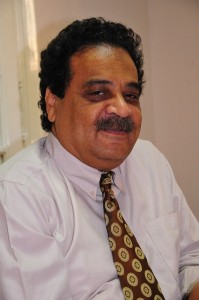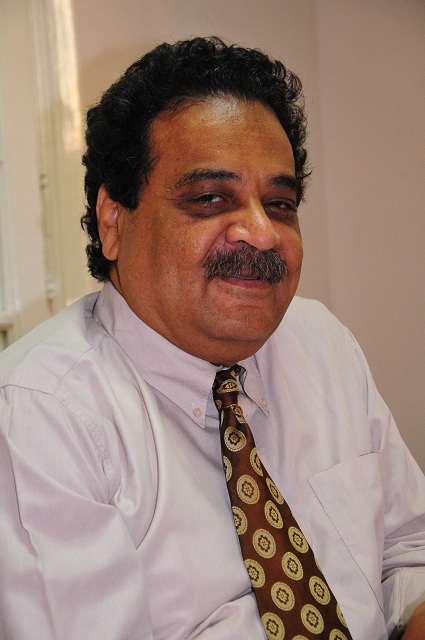
Immediately following the assassination of President Anwar Al-Sadat, the former regime imprisoned hundreds of democratic and leftist partisans so that it could carry out its widespread repression of political Islam without being accused of being hostile to either Islam or Muslims.
Under this policy for the equal distribution of injustice, hundreds of democratic and leftists leaders were arrested, starting the morning of 7 October and continuing in the days that followed.
Providence decreed that I was one of these hundreds; some of whom spent two months in prison, while others like myself were imprisoned more than ten months before being released in the last group of democratic and leftist forces who had been held for no reason or fault of their own.
This release came after the cycle of confrontation between the authorities and political Islam had widened. It had become clear that a just distribution of injustice no longer had to be justified in light of the Islamist forces’ growing danger compared to the democratic forces’ weakness and regression due to the continued conflict between them and the authorities throughout the 1970s, in addition to the authorities’ support of political Islam during the same period.
While imprisoned in a cell block containing approximately twelve cells, each large enough for fourteen to sixteen prisoners, we members of democratic groups met hundreds of members and leaders of the Islamist movement. We occupied four cells while the Islamists occupied eight. Due to the large number of detainees and the small number of prisons at that time, each cell housed more than three times its planned capacity.
During the ten months that I spent in Leman Tora Prison, I was interested to learn about the Islamist movement and so talked with dozens of Islamist prisoners. One of the most striking and curious things to us democrats and leftists was the plurality of Islamist organisations.
Each organisation or group called for prayer independently and prayed on its own. Thus, we could learn the number of groups in the prison by observing the number of muezzins, especially during the morning prayer when stillness prevailed and we were able to count accurately.
It amazed us that we knew more than ten groups inside the ward and that didn’t include Gama’a Islamiyaa and Jihad, the most extreme armed group, as its members were incarcerated in other maximum security prisons where they were tortured in order to obtain confessions to help eliminate the group.
In my discussions with the Islamic leaders whom met in prison, I always stressed how the Islamists disagreed among themselves and were not able to settle their disagreements to become one group. I believed that this failure to unify the Islamist movement was evidence that there were not two camps, the land of belief and the land of disbelief. Then, I would ask: would the rule of any one group be Islamic rule?
Questions like these confused many of those with whom I talked while in prison. However, I was once surprised by one of the Islamists, who told me that all these differences were of little importance and value as they are fundamentally related to how to attain power and from there apply Islamic law.
Whereas the radical groups believed that violence was the only way, other groups believed that widening the scope of believers through proselytising would lead to the same goal. Thus the goal was one but there was disagreement as to the necessary means, with some calling for violence and others for proselytizing, and both groups supporting their argument with ascriptions to Islamic law and jurisprudence.
Despite these differences, the distinguished Islamist whom I met in Leman Tora Prison in 1981 still said that the differences would end if Islamists came to power, regardless of whether they did so by violence or by proselytising.
As soon as this happened, each group would renounce their differences, which would be consigned to history, and work hand in hand to enforce Islamic law, about which there was no disagreement.
This story was illuminating for me. As such, I could understand how what appeared to be large differences between moderates and extremists melted away once Islamist political forces obtained a parliamentary majority.
And after Morsy’s rise to power that followed, it became clear that those who were previously opponents had overcome the differences that divided them. Those groups that once carried out armed operations due to repression and tyranny ceased or almost ceased these operations, despite the absence of security, the abundance of weapons and the release of their most important leaders from prison, which gave them greater opportunities to establish their presence.
It has been noted that the honeymoon between moderates and extremists, set against a background of their disagreement on how reach power and enforce Islamic law, has ended, or has nearly ended.
This clears the way for the birth of new disagreements within the Islamist movement set against a new background of whether the immediate enforcement of Islamic law is possible or whether it ought to be carried out in stages.
The radical wing believes that the enforcement of God’s law is possible now following the Islamists’ rise to power. Power is now in the Islamists’ hands and there is nothing preventing them from achieving their dream of declaring an Islamic state, not to mention the fact that hastening to declare an Islamic state has become a religious obligation.
The other group, however, believes that various reasons make the gradual enforcement of Islamic law a necessity. These reasons include the following: in terms of piety and devotion the nation is not ready for the enforcement of Islamic law; the opponents of Islam are still strong and thus some of them must be polarised, others neutralised, and those that remain liquidised.
Finally, those calling for gradualism do not believe that the international status quo would accept the declaration of an Islamic state or the enforcement of Islamic law.
What degree of disagreement can be reached between those calling for the immediate enforcement of Islamic law and those calling for gradualism? Is it possible for us to consider this difference is between extremists and moderates who are standing on different spots of ground? Or is it a difference that stands on one spot of ground and whose existence is derived from the same sources?


